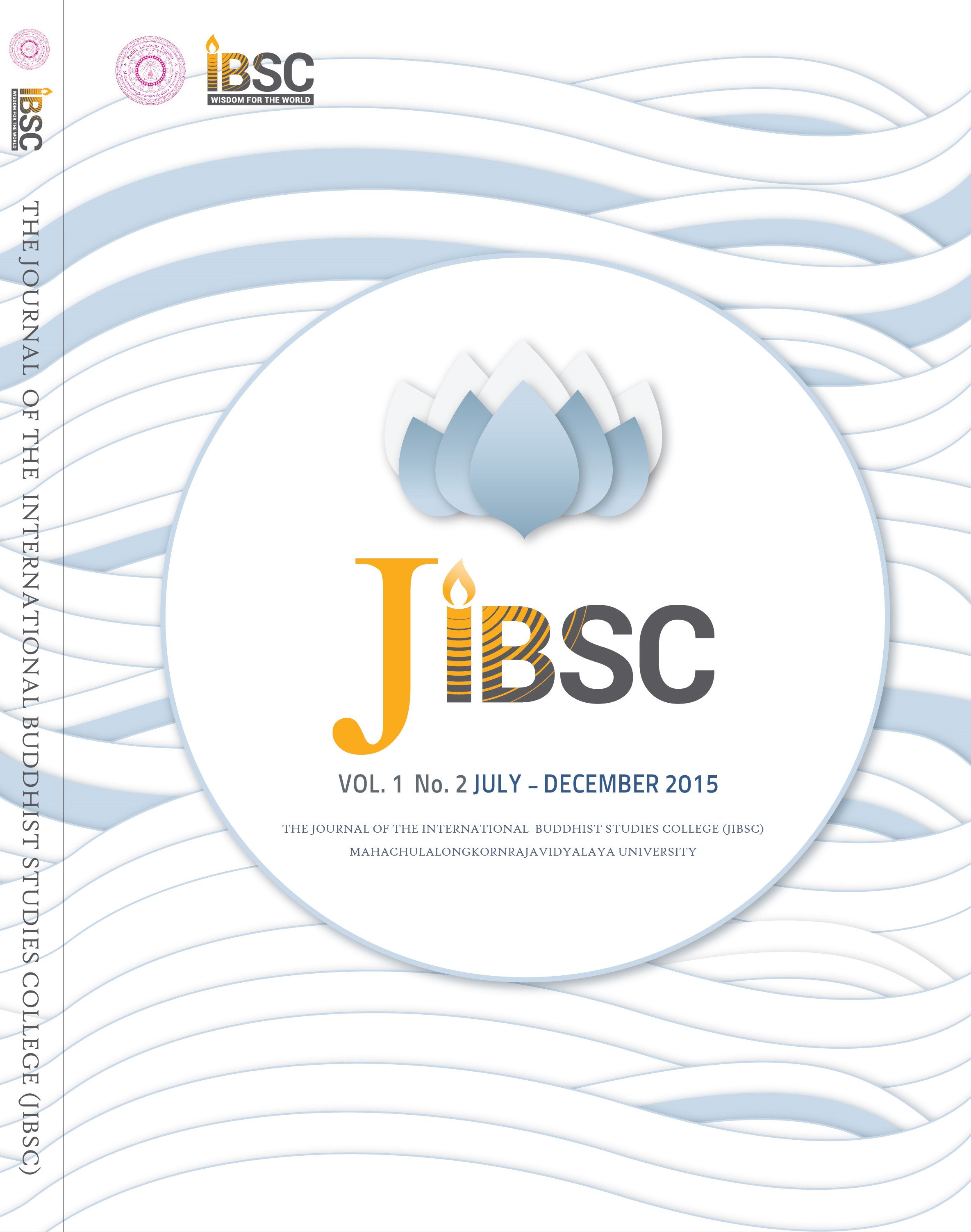DASAKIRIYĀVATTHU (TENFOLD ACTIONS) FOR MORAL DEVELOPMENT
Main Article Content
Abstract
Dasakiriyāvatthu have the ten moral and ten immoral actions. A person is expected to develop his or her moral by adopting the ten moral actions, or by avoiding the ten immoral actions. In this connection, this article consists of two objectives: (1) to study the classifi cation of bad deeds and their results and (2) to study the classifi cation of good deeds and their results. The outcomes of these two objectives are expressed that it has clearly shown, according to the fi rst objective, the detailed classifi cation of bad deeds and how those bad deeds would bring suffering to the mankind. Each and every suffering deriving from those ten unwholesome actions is relevant to the modern human societies. The result of the second objective, therefore, is the opposite of the fi rst objective in which prosperity and happiness are certainly maintained by the following the ten wholesome actions.
Article Details
The Journal of TCI is licensed under a Creative Commons Attribution-NonCommercial-NoDerivatives 4.0 International (CC BY-NC-ND 4.0) licence unless otherwise stated. Please read our Policies page for more information on Open Access, copyright and permissions.


